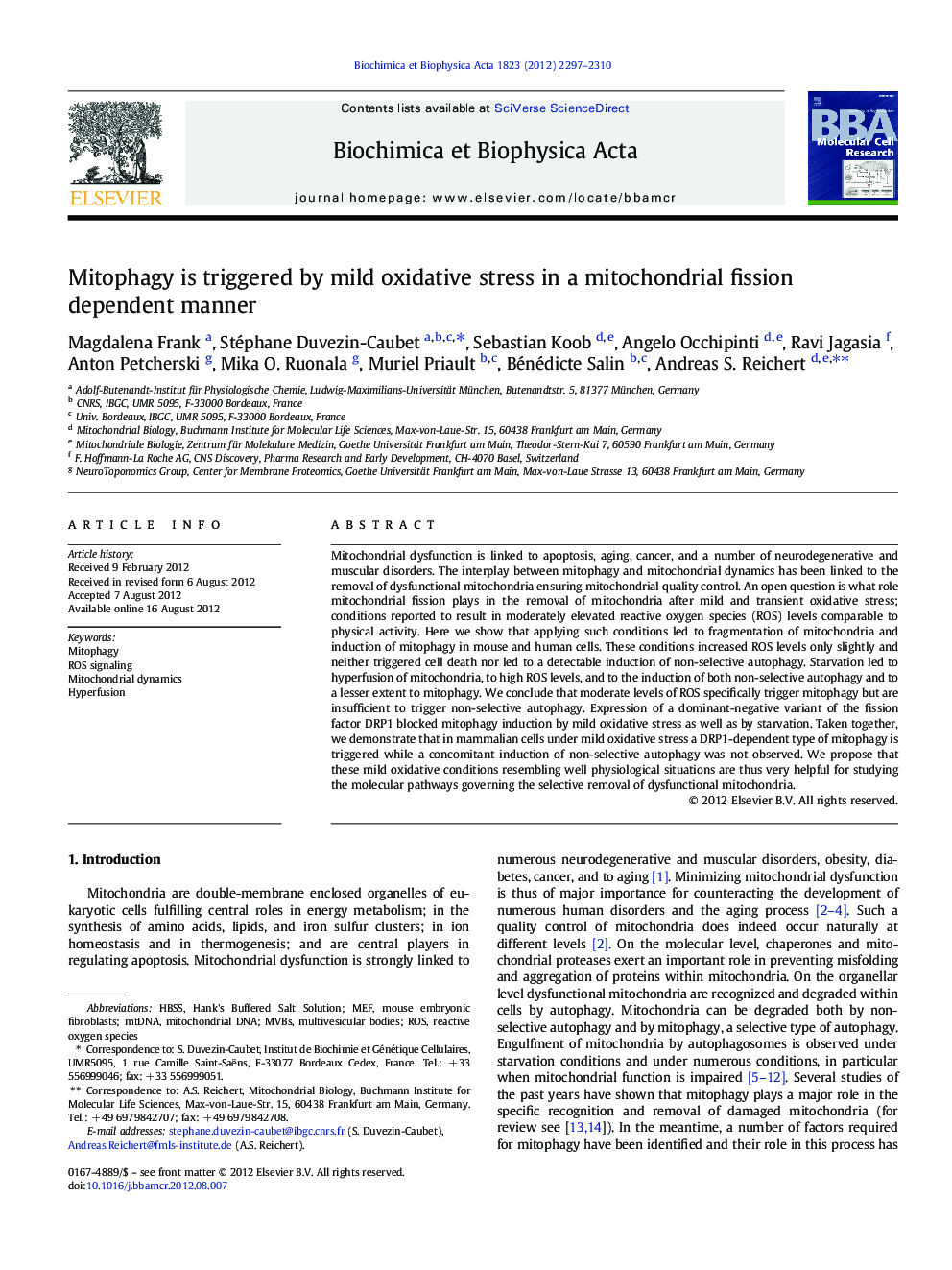| Article ID | Journal | Published Year | Pages | File Type |
|---|---|---|---|---|
| 1950675 | Biochimica et Biophysica Acta (BBA) - Molecular Cell Research | 2012 | 14 Pages |
Mitochondrial dysfunction is linked to apoptosis, aging, cancer, and a number of neurodegenerative and muscular disorders. The interplay between mitophagy and mitochondrial dynamics has been linked to the removal of dysfunctional mitochondria ensuring mitochondrial quality control. An open question is what role mitochondrial fission plays in the removal of mitochondria after mild and transient oxidative stress; conditions reported to result in moderately elevated reactive oxygen species (ROS) levels comparable to physical activity. Here we show that applying such conditions led to fragmentation of mitochondria and induction of mitophagy in mouse and human cells. These conditions increased ROS levels only slightly and neither triggered cell death nor led to a detectable induction of non-selective autophagy. Starvation led to hyperfusion of mitochondria, to high ROS levels, and to the induction of both non-selective autophagy and to a lesser extent to mitophagy. We conclude that moderate levels of ROS specifically trigger mitophagy but are insufficient to trigger non-selective autophagy. Expression of a dominant-negative variant of the fission factor DRP1 blocked mitophagy induction by mild oxidative stress as well as by starvation. Taken together, we demonstrate that in mammalian cells under mild oxidative stress a DRP1-dependent type of mitophagy is triggered while a concomitant induction of non-selective autophagy was not observed. We propose that these mild oxidative conditions resembling well physiological situations are thus very helpful for studying the molecular pathways governing the selective removal of dysfunctional mitochondria.
► Mitophagy is specifically induced by mild and transient oxidative stress. ► Moderate levels of reactive oxygen species do not trigger non-selective autophagy. ► ROS and starvation induced mitophagy occurs in a DRP1-dependent manner. ► Starvation induced hyperfusion of mitochondria counteracts mitophagy. ► Physiological conditions for the specific induction of mitophagy are established.
